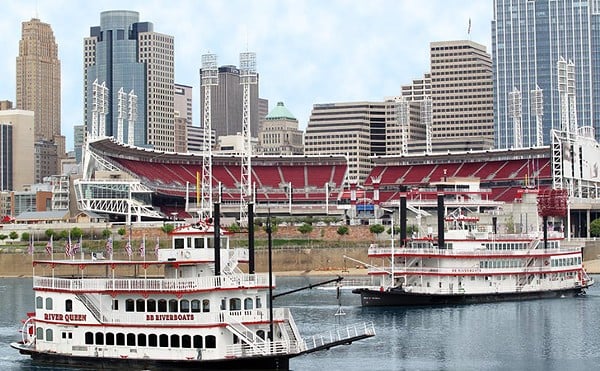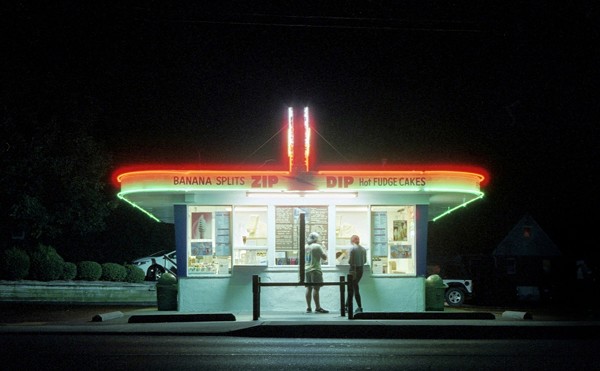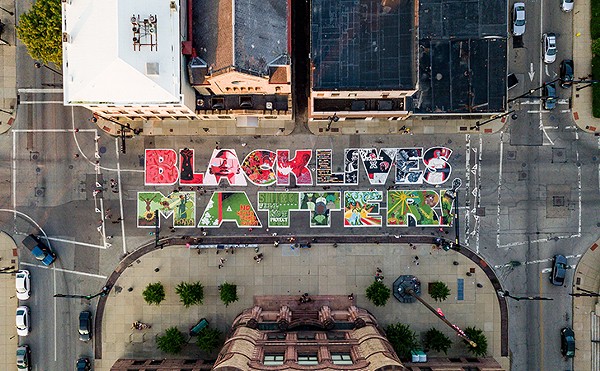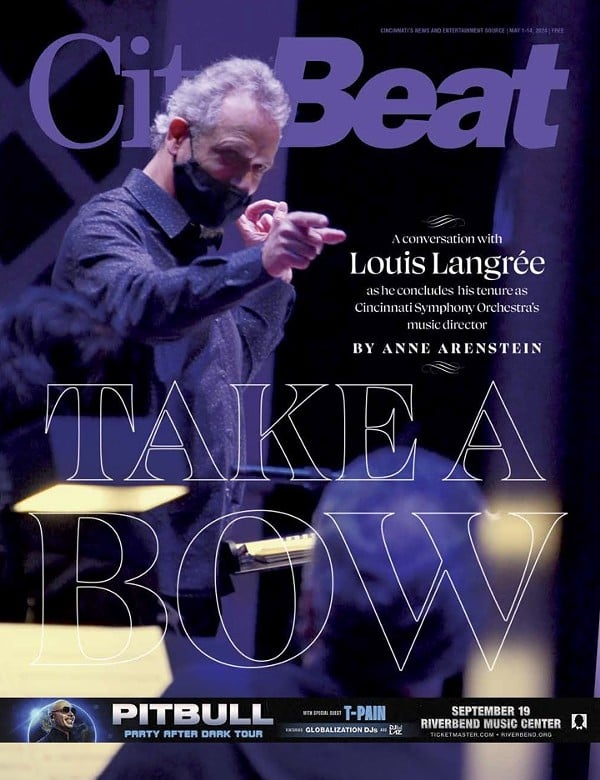From Thief (1981) to Miami Vice (2006), Michael Mann has made a career of investigating men who live by morally ambiguous codes of honor. Who better, then, to tackle the life of John Dillinger, a man who fancied himself as a Robin Hood for the Depression Era?
Public Enemies is based on Bryan Burrough’s book of the same name, and its subtitle ("America’s Greatest Crime Wave and the Birth of the FBI, 1933-34") acts as an apt description of the film’s condensed narrative arc. Babyface Nelson, Pretty Boy Floyd and J. Edgar Hoover (a creepy Billy Crudup) all make appearances, but Public Enemies mostly centers on the cat-and-mouse game between Dillinger (Johnny Depp) and Melvin Purvis (Christian Bale), the FBI guy who eventually took down the (in)famous bank robber.
Sound familiar? Yes, it's as if Mann garnished his own Heat — which featured Robert DeNiro and Al Pacino as meticulous career men on opposite sides of the law — with lavish period duds and microwaved it to lesser effect.
The film opens in 1933 with a prison break in Michigan City, Ind., and closes with Dillinger’s death on July 22, 1934, outside Chicago’s Biograph Theatre. In between — amid a flurry of bank robberies, two large-scale action set pieces and a surprisingly potent (if truncated) love story — Public Enemies attempts to reveal what made Dillinger tick during his short life (he spent most of his 31 years either in jail or in hideouts).
Yet, curiously, Mann and his co-screenwriters Ronan Bennett and Ann Biderman give us precious little insight into Dillinger’s motivations or cultural impact. Early on, in an attempt to appease his would-be girlfriend Billie Frechette (Marion Cotillard), a sentiment-free Dillinger succinctly describes his troubled childhood (his mother died when he was 3, and his father beat him thereafter) before wooing her with this list of interests: “I love baseball, movies, good clothes, whiskey, fast cars and you. What else do you need to know?” Dillinger’s existential, no-tomorrow outlook is best exemplified when she asks him where he sees himself going. “Wherever I want,” he answers.
While rife with period detail and often shot at authentic locations, Public Enemies doesn’t possess the visceral jolt of Mann’s best films (Manhunter, Heat, The Insider, Miami Vice), all of which pulsate with the technologically informed rhythms of modern life. Yet as he did within the similar biopic constraints of Ali, Mann employs everything in his ample technical arsenal to create atmosphere and tension where little should exist. He almost makes us believe that Dillinger will live forever. And, in a sense, he has. Grade: B-
Opens July 1. Check out theaters and show times, see the film's trailer and find nearby bars and restaurants here.





